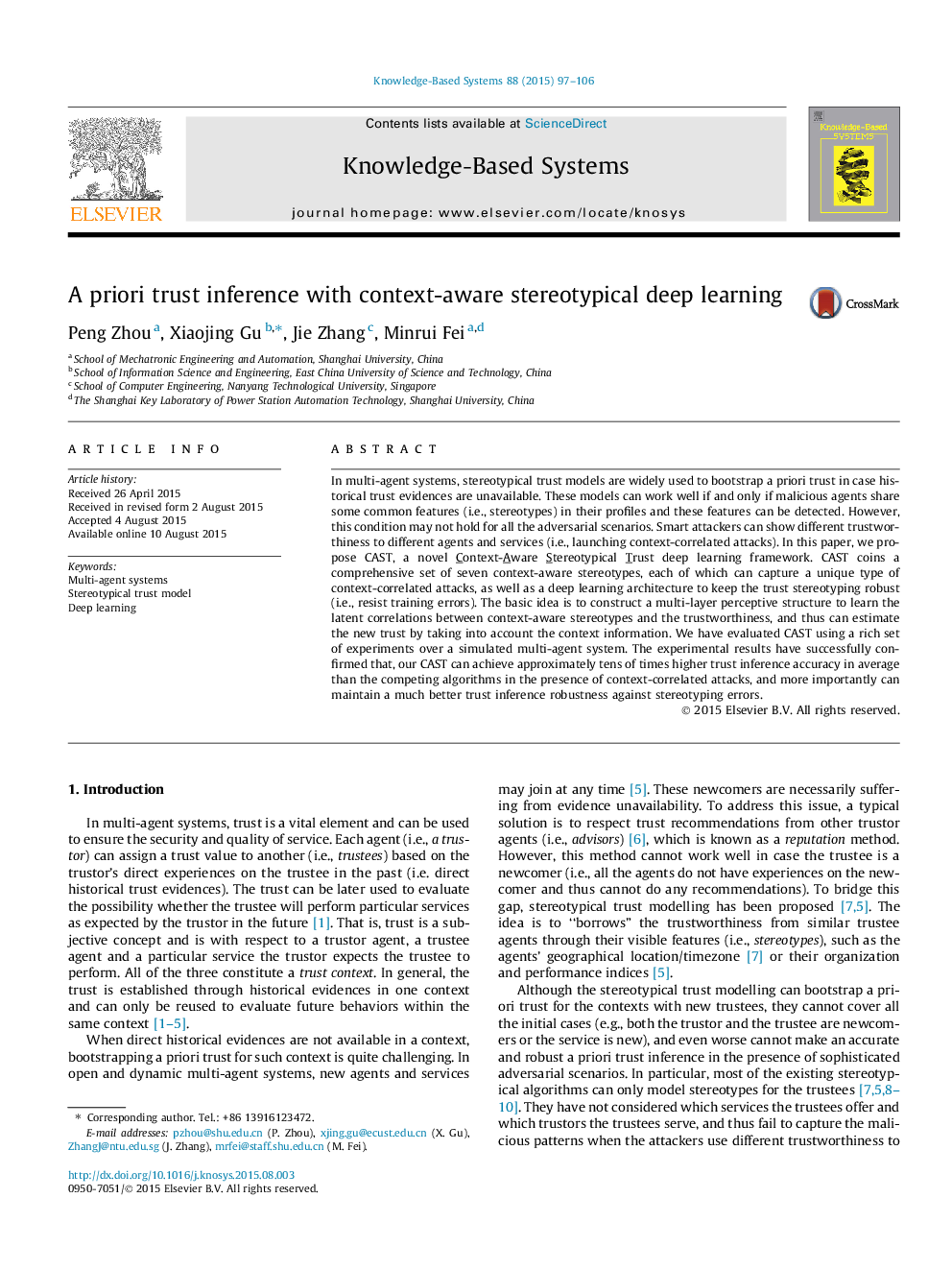| کد مقاله | کد نشریه | سال انتشار | مقاله انگلیسی | نسخه تمام متن |
|---|---|---|---|---|
| 402227 | 676880 | 2015 | 10 صفحه PDF | دانلود رایگان |
• We have proposed CAST, a new context-aware stereotypical trust model.
• We have considered a comprehensive set of seven context-aware stereotypes.
• We have applied a deep learning architecture to keep trust stereotyping robust.
• We have confirmed the effectiveness of CAST using a rich set of experiments.
In multi-agent systems, stereotypical trust models are widely used to bootstrap a priori trust in case historical trust evidences are unavailable. These models can work well if and only if malicious agents share some common features (i.e., stereotypes) in their profiles and these features can be detected. However, this condition may not hold for all the adversarial scenarios. Smart attackers can show different trustworthiness to different agents and services (i.e., launching context-correlated attacks). In this paper, we propose CAST, a novel Context-Aware Stereotypical Trust deep learning framework. CAST coins a comprehensive set of seven context-aware stereotypes, each of which can capture a unique type of context-correlated attacks, as well as a deep learning architecture to keep the trust stereotyping robust (i.e., resist training errors). The basic idea is to construct a multi-layer perceptive structure to learn the latent correlations between context-aware stereotypes and the trustworthiness, and thus can estimate the new trust by taking into account the context information. We have evaluated CAST using a rich set of experiments over a simulated multi-agent system. The experimental results have successfully confirmed that, our CAST can achieve approximately tens of times higher trust inference accuracy in average than the competing algorithms in the presence of context-correlated attacks, and more importantly can maintain a much better trust inference robustness against stereotyping errors.
Journal: Knowledge-Based Systems - Volume 88, November 2015, Pages 97–106
